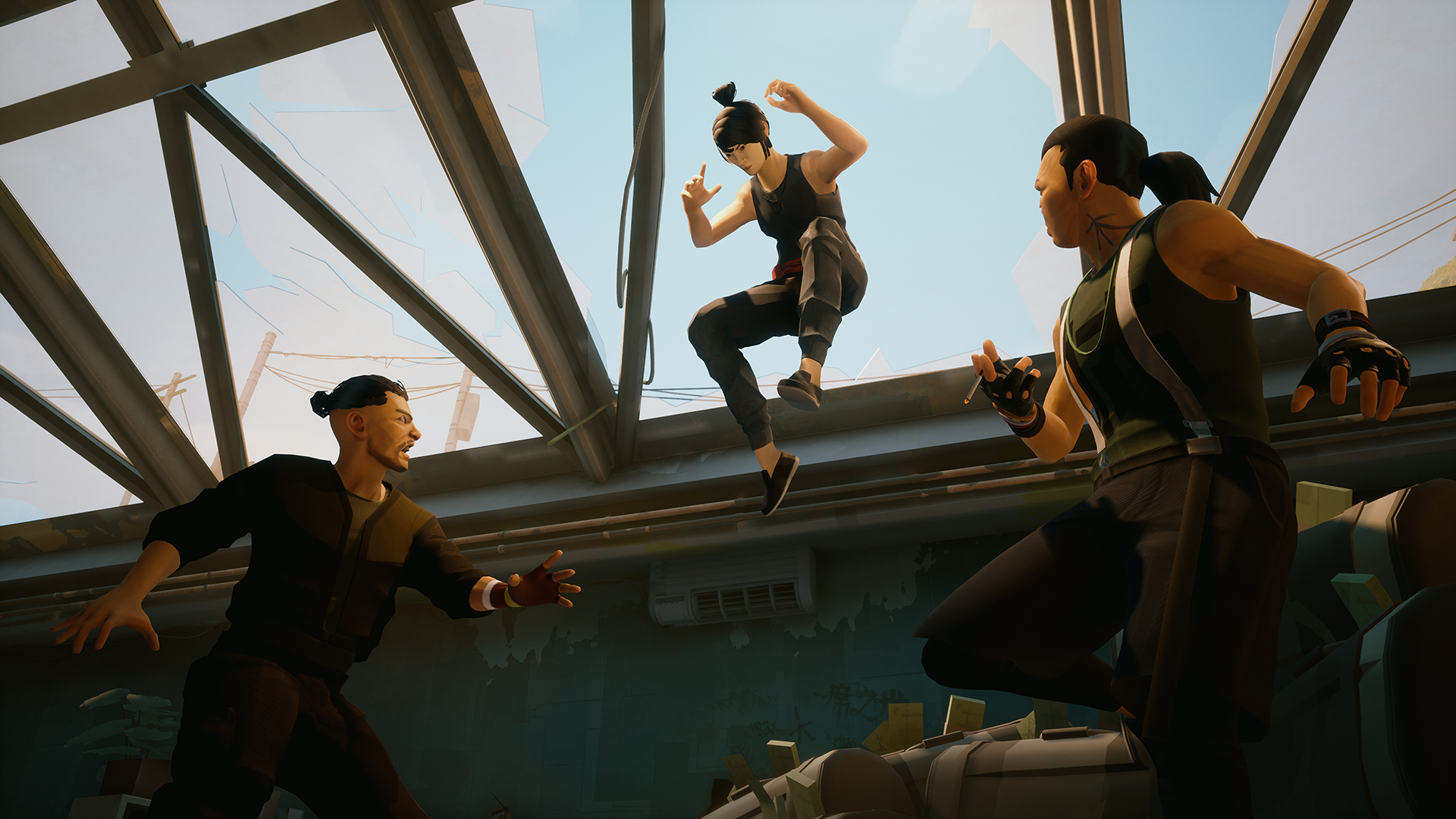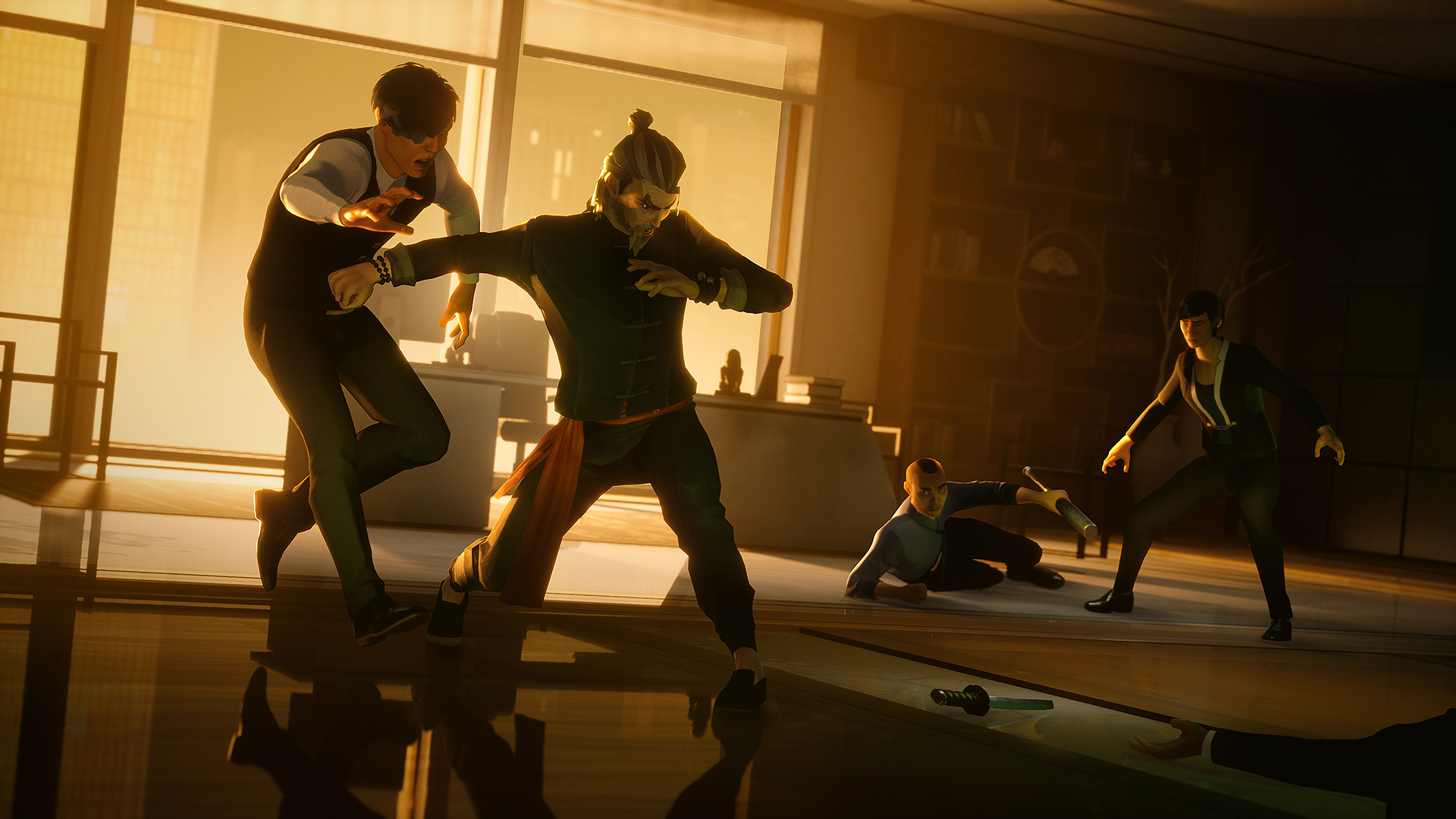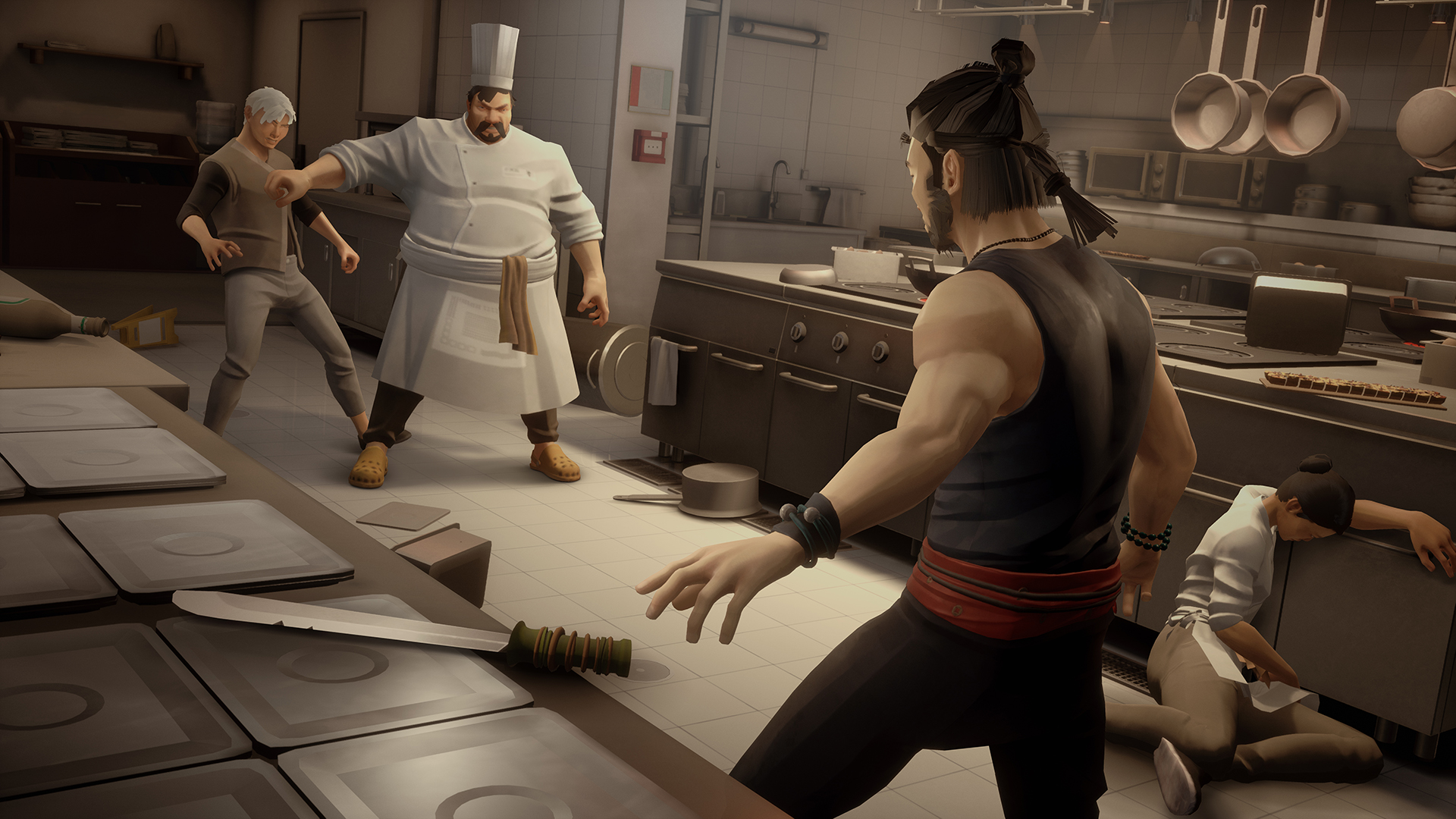It’s a kung-fu tale as old as time: a Pak Mei master teaches a student all he knows, and later, that student returns to challenge their former mentor in a fight to the death. The disciple not only kills the master but his whole family, save for one child who survives. Eight years later, that now-grown child seeks revenge for the murder of their father. New kung-fu action-brawler, Sifu doesn’t stray too far from that framework, and while the story might be familiar to anyone who grew up on classic kung-fu films of the ’60s and ’70s, the game brings with it a mix of Soulsborne timing and difficulty along with a unique aging component to create a gaming experience many won’t soon forget.
Sifu pushes boundaries — and the player’s patience. The nameless main character is determined to exact revenge and has to conquer five unique city districts as they hunt down the people responsible for the death of their father. Each district is led by a boss known for their own unique skills. There’s the botanist, who lives in the warehouse district and makes drugs for the gang to sell. The CEO runs the corporate side of the business from a heavily guarded skyscraper. And of course, the leader — the aforementioned student whose hands are covered with the blood of their master — who rules over everyone as a healer. Each district is filled with foot soldiers of varying difficulty that will require all your skills to take down.

Combat in Sifu is (at first) simple to learn. There’s the usual mix of heavy and light attacks, a block/parry, and a special attack that’s meant to be used on downed enemies, with each tied to a single button press. You also have a structure bar (think stamina) that you have to keep an eye on, all while doing whatever you can to break your opponent’s. Doing so sets them up for an easy finisher. There’s more to the combat, of course, but those four buttons are the key to success, and Sifu has over 150 combo attacks to make use of. You can even slow time by pressing the left trigger and target specific areas on an enemy with your fists, feet, or weapons.
Sifu is a game of timing (in more ways than one). Successfully deflecting, or better yet, parrying an attack allows you to strike when there’s an opening. Enemies don’t always telegraph their moves, so paying attention is paramount if you want to progress. And when you inevitably get swarmed, running away to create some breathing room is a must. There are weapons in each level that you can make use of, but so can your enemies, and a swarm of baddies with lead pipes is a surefire way to die, whether you run or not. Playing patiently, looking for opportunities to strike, and using your environment is the only way to survive. But regardless, you will die. And often. And that brings up Sifu’s coolest mechanic.

When you die in Sifu, you immediately return to life, albeit older and wiser. You have to suspend disbelief at this point, as your character can die, return to the same spot in the battle, and be six years older. Enemies don’t age, and no time has passed — you just suddenly have a beard and maybe an extra wrinkle or two. This is because of a trinket you carry, which contains five mystical coins that restore you to life if you die. The catch is you’ll age each time you fall, and the number of years you’ll age is affected by how many times you’ve died. You start the game at age 20, and if you die, you come back at 21. If you die again — your second death — you’ll age two years (one year for each death), and that number compounds quickly. Before you know it, you’re an ancient 74 years old, and at the end of your journey. The good news is you get stronger with each death. The bad news? Your life bar gets shorter with age.
You can die and come back as long as have coins on your pendant, and they eventually break away with each decade that passes. Thankfully, developer Sloclap throws players a bone by letting you use XP to buy skills, and those skills can be made permanent if you buy them five times across one full cycle of your life pendant. If you can do that, the learned skill transcends your death — and full-on restarts — giving Sifu a tough, yet rewarding, grinding system. The game’s skill tree is presented as an actual tree planted where your father died at your wuguan (or training hall), which is a nice touch.

The first time I beat the game’s first boss, I was 74 years old and ready to proceed to the next area (the story unfolds across a single day — again, suspend your disbelief). As expected, I was quickly thwarted, and instead of restarting in the second area, a nightclub, at age 20, I found myself at 74 with a tiny life bar. That’s where the most punishing aspect of Sifu emerges: to beat the game, you have to go through all five locations, and defeat all the foot soliders, mini-bosses, and five “big” bosses on one “life” (pendant strand). Oof. Someone at Sloclap hates really humanity.
Sifu‘s art direction borrows aspects of cel-shading and watercolor, lending it an almost cartoony look, though it works for this type of game and story. The score by Howie Lee blends traditional Chinese music with fast-paced electronica to create a memorable soundtrack for your many deaths (and hopefully eventual success) in exacting revenge for your family.
There are plenty of other aspects to the game that I haven’t even fully explored, like level shortcuts and reward idols, but that discovery is part of the joy that Sifu creates. It’s a tough game — I’d argue it’s tougher than any Soulsborne game that I’ve played so far — but I cannot express into words what I felt the first time I beat a boss. The rush of accomplishment was addicting and made me want to soldier on — and that has fueled my gameplay ever since the first time I selected “new game” on the main menu. When — and if — you beat Sifu, you will feel empowered spiritually. And perhaps that’s its greatest achievement. Like learning any martial art, you will get knocked down; you will feel pain, but if you push through, have patience, learn from your mistakes, and keep growing as a fighter, you will be rewarded.
This review is based on the PlayStation 5 version of the game. A copy was provided to us by Sloclap.
Great
Sifu preaches patience as it brutalizes your very existence in every way imaginable. But if you stick with it, and continue to learn from your mistakes, you'll eventually get your revenge and find the peace you were looking for.
Sifu
